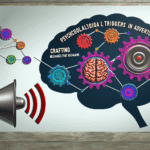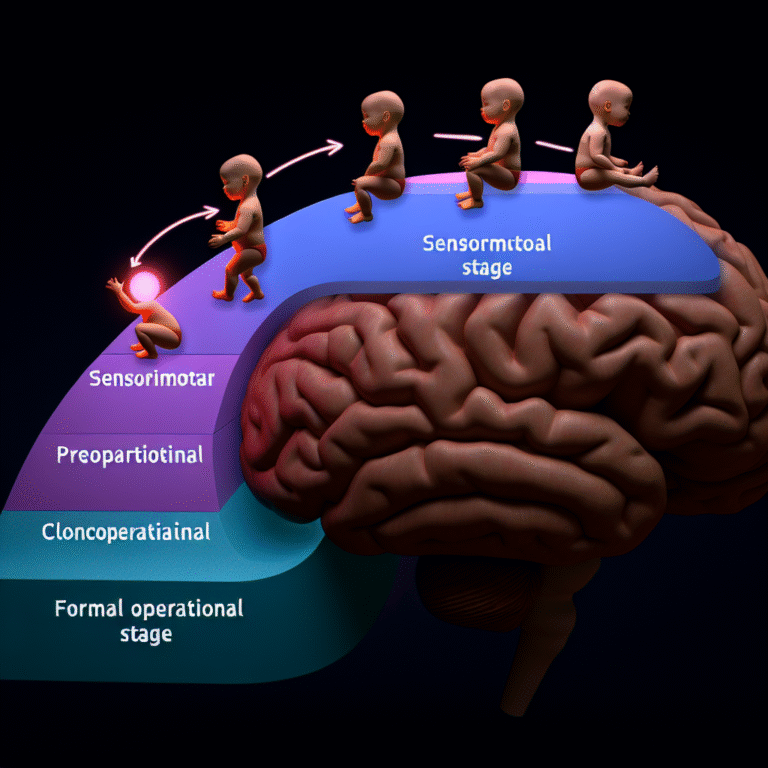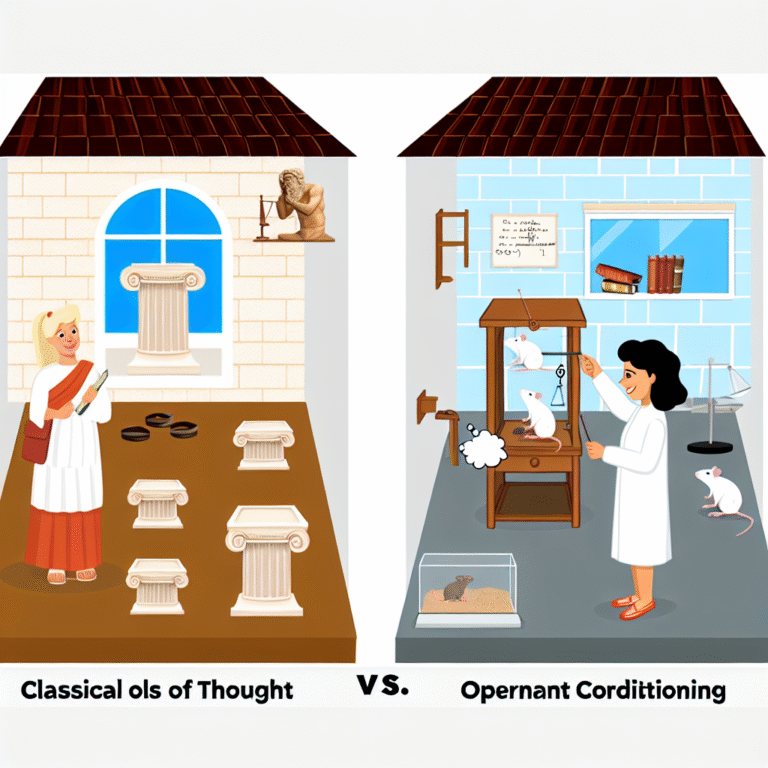
The Science of Study: Proven Techniques for Psychology Students
Introduction
Every psychology student has faced the daunting task of absorbing vast amounts of information, interpreting complex theories, and applying research findings to real-life situations. The stakes are high, not just for academic performance but for future career paths. Understanding "The Science of Study: Research-Backed Techniques for Psychology Students" is essential for maximizing learning potential and retaining knowledge effectively. This comprehensive exploration will reveal practical, research-backed strategies that can transform your study habits, making them not just effective but enjoyable.
The Foundation of Effective Studying
Understanding Learning Theories
Before diving into specific techniques, it’s important to understand the underlying theories of learning. Key theories, such as behaviorism, constructivism, and cognitive load theory, offer insight into how individuals absorb, process, and retain information.
- Behaviorism emphasizes the influence of external stimuli on learning.
- Constructivism posits that students build knowledge through experiences.
- Cognitive Load Theory highlights the limitations of working memory and the importance of instructional designs that minimize cognitive overload.
Table 1: Key Learning Theories
| Theory | Key Concepts | Application in Study Techniques |
|---|---|---|
| Behaviorism | Stimulus-response patterns | Use of reinforcements and practice tests |
| Constructivism | Knowledge construction via experience | Group discussions and project-based learning |
| Cognitive Load Theory | Limits on information processing capacity | Chunking information and using visual aids |
The Importance of Metacognition
Metacognition, or "thinking about thinking," allows students to evaluate their understanding and assess their study strategies. Implementing metacognitive practices can lead to better self-regulation and improved learning outcomes.
Case Study: Psychology Majors and Metacognitive Strategies
In a study by Dunlosky et al. (2013), psychology students who employed metacognitive techniques—such as self-testing and planning their study sessions—demonstrated significantly higher retention rates compared to those who relied solely on passive review methods. This case study emphasizes that being aware of one’s learning strategies can lead to more effective studying.
Research-Backed Techniques for Enhanced Learning
1. Active Recall
Active recall is a technique where you actively engage with the material, testing yourself rather than passively reviewing it. This method has shown to reinforce memory retention efficiently.
How to Implement:
- Use flashcards with prompts and responses.
- Practice writing summaries from memory after studying a section.
2. Spaced Repetition
Spaced repetition involves revisiting material at increasing intervals, leveraging the "spacing effect" to enhance long-term retention.
How to Implement:
- Schedule study sessions progressively further apart.
- Use apps like Anki or Quizlet to automate this process.
3. Interleaved Practice
Interleaving different subjects or types of problems during study sessions can improve problem-solving skills and memory retrieval.
How to Implement:
- Mix psychology courses with courses in statistics or research methods.
- Alternate study topics during a single study session.
4. Dual Coding
Dual coding blends verbal and visual information, enabling students to create richer mental connections.
How to Implement:
- Integrate diagrams and flowcharts into your notes.
- Create mind maps that combine text and images.
5. Elaborative Interrogation
This technique encourages students to explain concepts in their own words and explore "why" and "how" questions related to the material.
How to Implement:
- While studying, ask questions like “Why does this theory work?” or “How does this concept relate to others I have learned?”
Incorporating Technology in Study Techniques
Learning Tools and Apps
In today’s digital age, a multitude of resources are available to psychology students. Here are some recommended tools:
Table 2: Useful Study Apps
| App Name | Functionality | Ideal Use |
|---|---|---|
| Anki | Flashcards with spaced repetition | Memorization of key concepts and terminology |
| Quizlet | Creating study sets and games | Interactive learning through gamification |
| Trello | Organizing tasks and schedules | Planning study sessions and project milestones |
| Google Scholar | Academic research and articles | Finding reliable resources for assignments |
Online Study Groups
Engaging in online platforms such as discussion forums and study groups can enhance collaborative learning experiences, allowing students to share ideas and insights.
Case Study: Virtual Study Groups for Psychology Students
A study by Laal and Ghodsi (2012) indicated that students who participated in online study groups reported higher levels of engagement and understanding of psychological concepts than those who studied alone. The findings support the effectiveness of collaborative learning techniques.
Creating a Productive Study Environment
Importance of Environment
The physical and psychological environment plays a significant role in concentration and productivity. Identifying your optimal study space can enhance focus and motivation.
Tips for Setting Up Your Study Area:
- Choose a quiet, well-lit space.
- Declutter to minimize distractions.
- Use ambient sounds or music to enhance focus.
Time Management Techniques
Shopping around for the best time management strategies can significantly impact your efficient studying. Techniques like the Pomodoro Technique, where you study in bursts followed by short breaks, can boost concentration.
How to Implement:
- Set a timer for 25 minutes to work intensely on a task.
- Take a 5-minute break to recharge.
The Psychological Foundations of Motivation
Intrinsic vs. Extrinsic Motivation
Understanding what drives you as a student can help tailor your study techniques. Intrinsic motivation comes from within, driven by a genuine interest in the subject, while extrinsic motivation is influenced by external rewards.
Strategies to Enhance Intrinsic Motivation:
- Set personal goals related to your studies.
- Connect psychological theories to real-life applications to heighten your interest.
The Role of Mindset
A growth mindset, the belief that abilities can be developed through dedication and hard work, can significantly affect your learning journey. Embracing challenges and persisting through difficulties is essential for psychology students.
Case Study: Growth Mindset in Education
Research by Dweck (2006) found that students with a growth mindset outperformed their peers in challenging academic settings. This evidence highlights the impact of mindset on resilience and perceived achievement.
Conclusion
In summary, understanding "The Science of Study: Research-Backed Techniques for Psychology Students" opens the doors to academic success and deeper knowledge retention. By integrating strategies such as active recall, spaced repetition, and dual coding into your study habits, along with employing technology and cultivating a conducive study environment, you can enhance your learning experience significantly.
Remember, the journey to becoming a proficient psychology student doesn’t have to be overwhelming. By leveraging effective study techniques and fostering a growth mindset, you’ll not only excel academically but also develop a genuine passion for the discipline. So, start implementing these techniques today to unlock your full potential.
FAQs
1. What is active recall, and how can it help me?
Active recall involves actively retrieving information from memory rather than passively reviewing notes. It deepens understanding and retention of the material.
2. How does spaced repetition work?
Spaced repetition utilizes intervals between learning sessions to enhance memory retention. This allows your brain to reinforce information over time.
3. Why should I use study apps?
Study apps like Anki and Quizlet can provide structured and interactive ways to learn, making studying more effective and engaging.
4. What is the Pomodoro Technique?
The Pomodoro Technique involves studying for a set period (usually 25 minutes), followed by a short break. This method promotes high focus and prevents burnout.
5. How can I improve my study environment?
Choose a quiet, organized space with minimal distractions. Adding personal touches and optimizing lighting can also enhance your focus and comfort.
This engaging exploration of "The Science of Study: Research-Backed Techniques for Psychology Students" offers not just strategies but a roadmap to success in your academic journey. Whether you’re preparing for exams, researching for presentations, or diving into complex theories, these tips can make a significant difference in your approach to learning and retention.














